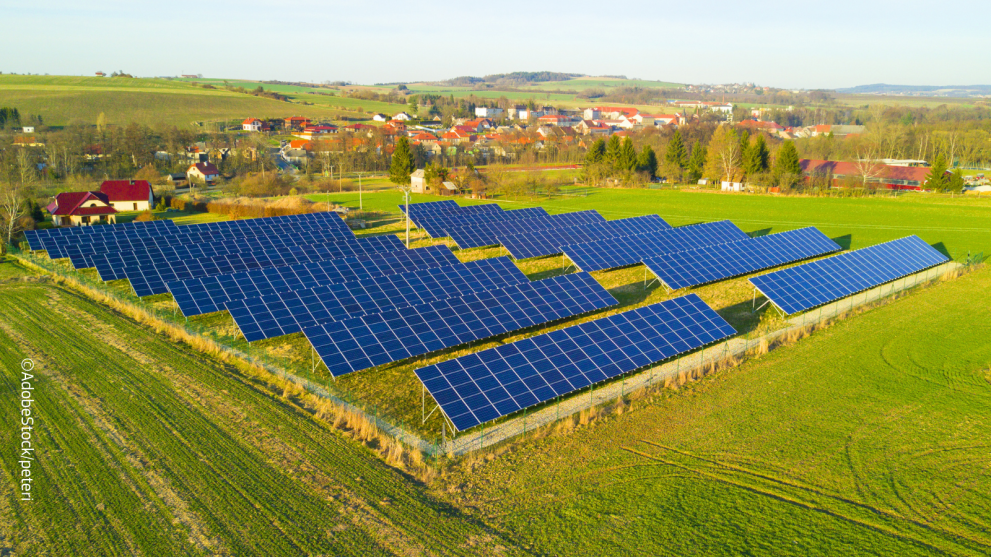
In some EU countries, permitting processes can be an obstacle to renewable energy projects. To address the issue, the revised Renewable Energy Directive (EU) 2018/2001, as amended by Directive (EU) 2023/2413, includes provisions that simplify permitting processes to help set renewable energy projects in motion, while taking into account legitimate concerns of citizens and respecting environmental standards.
Simplifying permitting processes
In May 2022, as part of the REPowerEU plan to shed the EU's dependence on Russian fossil fuels, the Commission proposed a series of measures to further accelerate renewable energy projects and remove administrative obstacles. Besides the proposal to amend the Renewable Energy Directive, the Commission also published a Recommendation on speeding up permit-granting procedures for renewable energy projects and facilitating Power purchase agreements (C/2022/3219) and a guidance document (SWD/2022/149) to EU countries on good practices.
In May 2024, 2 years after the adoption of the REPowerEU Plan, the Commission adopted a series of new and updated recommendations and guidance documents to improve and streamline permitting procedures and auctions for renewables including
- an updated Recommendation on speeding up permit-granting procedures (Commission Recommendation (EU) 2024/1343) and its accompanying guidance (SWD/2024/124)
- a further guidance document on designating renewables acceleration areas where the deployment of renewable energy projects is not expected to have significant environmental impacts and the necessary procedures can therefore be fast-tracked (SWD/2024/333)
In November 2023, the Commission proposed to prolong certain emergency measures on permitting (adding additional targeted elements), which were initially introduced in December 2022 for a period of 18 months.
These measures are aimed at shortening and accelerating the permit-granting procedures for renewable energy projects, as well as for grid and infrastructure projects that are needed to integrate renewable energy into the electricity system. They therefore complement the permitting reforms that need to be transposed by EU countries by mid-2024 under the revised Renewable Energy Directive.
At the Council of 19 December 2023, EU Ministers agreed to extend the period of application of certain amended provisions of the regulation until 30 June 2025.
Power purchase agreements
Renewable power purchase agreements (PPAs) – direct contracts between corporate companies and electricity suppliers – are expected to become a major driver for more market-based renewables deployment in the coming years. However, the take-up of this concept has been much slower than expected.
The Commission published in May 2022, a Recommendation and a guidance document on permit-granting processes and PPAs suggesting how best to facilitate power purchase agreements.
Study and public consultation
To gather relevant inputs from stakeholders, the Commission contracted a study on simplification of permission and administrative procedures for RES (renewable energy sources) installations and launched a call for evidence and a public consultation on permit-granting and PPAs in the first quarter of 2022. The synopsis report on the call and the consultation was published in May 2022 (SWD/2022/151).
The final report of the 'RES Simplify' study was published in 2023. It provides a comprehensive overview of the barriers and good practices related to permit-granting identified in EU countries, Norway and Iceland between 2020-2023.
Workshops
To support EU countries, the Commission organised a first workshop on permit-granting processes for renewable energy projects in June 2022. Around 100 high-level officials from environment and energy ministries, related agencies from almost all EU countries and officials from several Commission departments attended. It provided an opportunity to discuss challenges and solutions at national, regional and local levels for streamlining permit-granting procedures, improving site selection and minimising environmental impacts.
A second workshop was organised on 17 November 2022 to discuss the options that EU countries have to deploy renewable energy projects quickly, while also ensuring public acceptance. In parallel, administrative barriers to faster permitting of renewable energy projects have also been discussed in the Single Market Enforcement Task Force throughout 2022. The implementation of the Commission Recommendation is being followed in a dedicated informal expert group for Member States.
Renewable energy communities

The Renewable Energy Directive places a strong emphasis on making it easier for citizens to consume and produce renewable energy. By introducing provisions on self-consumption and renewable energy communities, it gives citizens the possibility to engage in renewable energy projects. Empowering citizens in the clean energy transition may also help increase the local acceptance of renewable energy projects.
Related links
- Press release - Commission presents guidance and recommendations to accelerate renewable energy roll-out ahead of REPowerEU anniversary (13/05/2024)
- Updated Recommendation on speeding up permit-granting procedures and its accompanying guidance (EU/2024/1343) and (SWD/2024/124)
- Further guidance document on designating renewables acceleration areas (SWD/2024/333)
- Revised Renewable Energy Directive (2018/2001/EU)
- Final study report: Technical support for RES policy development and implementation (April 2023)
- Council Regulation amending Regulation (EU) 2022/2577 laying down a framework to accelerate the deployment of renewable energy (EU/2024/223)
- Council Regulation laying down a framework to accelerate the deployment of renewable energy (EU/2022/2577)
- Synopsis report on the permitting and power purchase agreements stakeholder consultation (SWD/2022/151)
- REPowerEU plan (COM/2022/230)
- Recommendation on speeding up permit-granting and PPAs (COM/2022/3219)
- REPowerEU: Joint European Action for more affordable, secure and sustainable energy (COM/2022/108)
- Press release - REPowerEU: Commission steps up green transition away from Russian gas by accelerating renewables permitting (10/11/2022)
- Call for Evidence and Public consultation on “Renewable energy projects – permit-granting processes & power purchase agreements” (Q2 2022)
